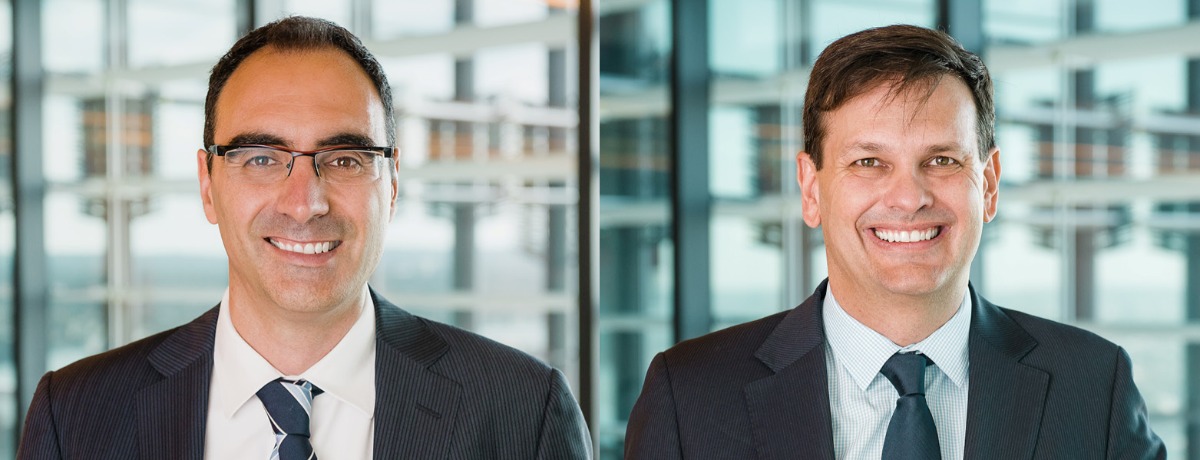For Costas Condoleon and Sam Nickless of Gilbert + Tobin—Australia’s 2020 “Law Firm of the Year” winner in Corporate Law—the past year has been just as much about giving back as it has been about success. The expertise of attorneys like Condoleon and his partners in Corporate Advisory has solidified the firm’s standing as a leader in M&A strategizing, adapting business plans in disruptive industries, and implementing good corporate governance practices with their clients. In a conversation with Best Lawyers CEO Phillip Greer, the two outline growing trends in the industry and meditate on the future of corporate law.
You've made gender diversity a priority and have also set up programs to support your LGBTQI associates, how has this paid off for the firm?
Sam Nickless: It pays off just because it's right and it feels good to be heading in the right direction. We know there's a lot of work still to be done, but again, doing the right thing has its own reward. But also, it has helped us to attract and retain quality talent, helped people feel comfortable being themselves at work, and aids in their overall performance because they can feel that they belong.
But we recognize there's a long way to go. Among the leading law firms in the country, our percentage of female partners is the highest, and we're proud of that, but we also realize that's just not good enough, to be at around 35 percent. We really believe that long term that should be at parity, but we also recognize that's a journey that's going to take some effort. So it has paid off, but it's something that we need to continue to invest in.
Can you tell me more about the Center of Public Law Project? What is the primary goal and how did your firm initially get involved with the University of New South Wales?
For us, that's largely an example of giving back into the community. The Center for Public Law's been a long-standing, community commitment we've made. Our founder Danny Gilbert has been very passionate about public law issues, and here in Australia, he's been quite outspoken publicly on helping to achieve constitutional recognition for our First Nations people.
He‘s had a relationship with the University of New South Wales for some time. So we helped to endow that center and fund the expertise in there. It's actually quite different from our normal day to day work, but it is more about giving back and helping develop expertise, discussion, and debate on aspects of public law and how that influences the rule of law in our country and internationally.
Can you describe any important trends you've witnessed in the corporate law sector in the past year? Any changes that have happened or new trends bubbling up? How do you see this practice evolving in the coming years?
Costas Condoleon: Last year transaction activity in the M&A sector was at a seven-year high in Australia, in terms of major public M&A activity. They’re usually a good indicator of what is more prevalent across the market. Frankly, 2019 is continuing where 2018 left off, and we expect that that will continue to be strong so long as the Australian economy remains strong.
Private equity was a very strong contributor, including in relation to public M&A deals. There are quite a large number of public market deals being done where private equity is the acquirer. That's obviously reflective of the amount of capital that private equity firms have to deploy, and the fact that finding private targets in Australia that meet their investment requirements can be challenging.
You’re probably aware that we have an enormous superannuation fund industry here. The Australian government mandates that a certain percentage of all Australian employees’ salaries are paid into what's called superannuation, which is effectively a compulsory pension fund. It's gotten to a scale now where the aggregate amount of money that is sitting in these super funds is greater than the aggregate market cap of all Australian listed companies. And they expect that over the next ten years it will be about three times that.
We're starting to see the superannuation funds participate in some of these public M&A transactions as well, which is quite an interesting development. Obviously these super funds are also heading off shore because the amount of capital that they have to deploy can't be satisfied with the opportunities in the Australian market. So in some respects, the funds are probably heading down the path that the Canadian pension funds have been heading down over the previous 10, 15 years. And that's quite an important development.
The other thing to mention is that last year there was a royal commission into misconduct in the financial services sector. That was a very significant development in Australia because our major banks were subject to public scrutiny through this royal commission, but more relevantly for present purposes, there were criticisms leveled against a couple of our regulators for not taking stronger action against the misconduct sooner.
As a reaction to that, we are seeing the Australian regulators become much more assertive. The Chairman of ASIC, our corporate regulator in Australia that is a bit like the SEC in the US, has already signaled a more aggressive approach–basically a “why not litigate” enforcement stance. So we are now seeing in practice, and we will continue to see, the regulators take a much more aggressive and perhaps even interventionist attitude towards transactions in Australia. Perhaps we are on a journey towards the regulatory model in America.
How are these changes shifting the focus and strategies over the course of the next couple of years internally?
One thing that you need to be aware of is the pools of capital. As you know, they fuel a lot of the transactional corporate activity. Those sources of capital comprise listed companies, private equity funds, and the super funds, amongst others. But as new pools of capital with new target investment strategies emerge, we are making sure that they are areas that we are focused on and developing our relationships with.
We're certainly seeing sectors such as Fintech grow in significance. That's a global phenomenon. G+T sees itself as at the vanguard of innovation in this legal market. We always look for industries and disruptors in the market who are having an impact and making sure that we are keeping abreast of developments and best able to support them.
So, as we've been seeing the Fintech sector become a more important part of the economy, we’ve made sure we've got a number of specialists who focus on that sector. We also think that increasingly, directors and boards are looking for well-rounded and informed corporate lawyers who understand the full macro context in which companies and directors operate, and are alive to global trends and debates that regulators, governments, and the community are having as these areas develop.
I think one of the things that the royal commission highlighted here, and that is part of the global debate that I mentioned earlier, is that the expectations of directors are growing in terms of what the community expects of them. And those expectations are manifesting themselves through increasing activism at a shareholder level. You've now got particular groups who have vested interests in particular policies (such as ESG) and who increasingly are seeking to hold directors and boards to account and to certain a standard those activists seek to set in pursuit of those policy priorities.
Overall, we need to be excellent at the law and be able to interpret it and understand what the boundaries of it are, but a large part of what we do is exercise judgment, and that gets informed by these other matters as well.

































